The reason why I’m standing here doing this assembly, is that Jude convinced me that quite a lot of you guys think education is about passing tests.But it’s strange… I feel like there’s something more to education than that. Miss Jones, did you do anything new last week? What was it? I suppose you’re taking a test in it then? That’s weird… [Miss Jones had planned on attending an evening class in sculpture]
Last night, I was listening to a lecture on life in Ancient Greece (which I’m not doing a test in) and I heard about the origin of the word ‘school’. It comes from the Greek you see, a word ‘schole’ What do you think it means? Testing place? Factory?
Schole means time kept for yourself – it is a leisure time, not for skills for your job, but for learning you chose, to help you understand life, who you were and what you might become, through an examined life.
Don’t get me wrong, I’d like you to pass your exams, and I’d like you to be skilful people. But is there something more to it than that?I asked three people who I really respect what they think education means. I asked them to write me a paragraph explaining what they thought. They sent me much more than that, so bear with me.
Laura’s story
 Let me start with Laura… She came from a very poor area in Northern England and a really bad school. She said:
Let me start with Laura… She came from a very poor area in Northern England and a really bad school. She said:When you live somewhere boring – and we all live somewhere boring -then we have a choice about the way we will see that place. We can spend our days thinking like everyone else, seeing the same things over and over, and never once wondering about how they got that way, or why they stayed that way, or how they could be better. Or, we can learn. And if we make the choice to learn, and to be curious about the things around us, then we are essentially making the choice never to be bored again.
As an example: While I was at college and university I worked at McDonalds. During the daily breakfast shift I might break and cook 400-plus eggs, one after the other. Smash, crack, sizzle, remove. Repeat! Smash, crack, sizzle, remove. Doing that every day is soul destroying. But when you learn that eggs cook because of coagulation; a remarkable process that involves protein becoming so excited with heat that it changes its soluble nature as it lays down in defeat and says “it’s too hot, I’m staying here”; then suddenly we are looking at something quite different. Suddenly, I saw those eggs as mini-battlefields where proteins fought heat warriors. I began observing which soldiers lay down first (do you know which part of an egg cooks first, the outer part or the middle?), and I began thinking about better ways of getting the proteins to become solid more evenly, or how they could hold off the heat for the longest time. On other egg-cracking days I would think about different lessons about eggs. I’d think about history class where I learned that due to hyper-inflation in Germany between the world wars the cost of an egg rose from a quarter of a Reichsmark (think 25p), to 4 billion Reichsmarks in just 5 years. Imagine: that would be like having to pay 4 billion pounds to buy an egg by the time you left school. Sounds stupid, but it happened. And whenever I remembered that story I would treat the eggs as if they were precious jewels aware that at any moment their price tag might start rising.
On other days still I would I look at the eggs and think about morality, and what people had taught me of right and wrong. If I was feeling particularly miserable, I would become angry: Why are we stealing another creature’s by-products and eating it? What if this egg had been fertilised, and had become a baby chicken? Would it have been happy to have survived, or did making it available for eating now simply save it from becoming a chicken nugget later down the line? And like many philosophers before and since I wondered: am I happier than a chicken? How could I even know?!
But worse than the fate of the nugget-bound chicken were the fates of people around me who never asked these questions. The fate of the people who saw how terrible our town was – with its power station, and shoddy buildings, and terrible unemployment – but they didn’t ask why, or how, or imagine what could be. Instead, day-by-day as we worked in that dingy kitchen for hours at a time, and as my mind danced with protein soldiers, hyperinflated eggs, and sad chickens, instead they looked down and simply saw each egg as…. an egg. A simple, boring – really boring – egg.
And that’s when I decided I had a choice. I could spend my life learning or I could spend it being bored. If I chose learning I would get to think, do, see, go wherever I wanted – hopefully in all of life, but even if I failed at that, at least I could go anywhere in my own head. But if instead I chose not learning, if like so many other people I chose boredom, then an egg …would only ever be …an egg, and that seemed like a truly terrible waste of a really quite amazing world.
Laura went to Oxford. She is now a Fulbright scholar in the USA. A Fulbright scholar’s studies are paid for – 46 Fulbright Scholars have won Nobel Prizes.
Fiona’s story
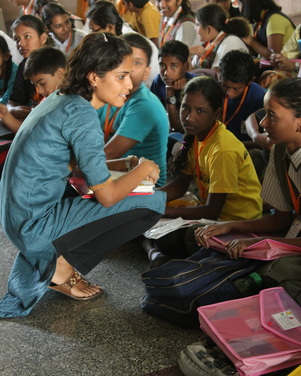 Then I asked my friend Fiona what she thought learning meant:
Then I asked my friend Fiona what she thought learning meant:
I never however understood what learning was. I did not see the point in Algebra at all, nor did I see the applicability of most of the Science lessons. For me it was largely passing tests and doing really well.
It is only now that I see the magic of ‘learning’. It is really magic. I learn most of the things myself- I find people who I want to learn from, if not people, I pick up books or I check online. When I learnt the specifics of gardening or composting I began to marvel at the complexity and simplicity of nature. When I cook I learn how my personal qualities become so evident through the dish I make. It’s all learning.
I don’t see learning as passing a test or an exam any more. I really see learning as application, as a connection. An openness to learning, which means the openness to discover, to think, and to connect helps to rewire the brain which forms a pattern that governs how we learn all our lives (it has been proven by research!) If I would have learnt all my life aiming at a certain goal (admission in a certain university, marks, an award) my entire outlook would be goal oriented (e.g. garden to get vegetables to be sold in a market, or cook to be praised etc) Learning is an end in itself.
I became a teacher because I wanted to give my students what I never got. When I teach them I first tell them how they can apply those concepts in real life. Exams are important- and my children know that. But what I really hope they know is that the process of learning is like embarking on a life-long journey. Because the way we learn is really the way we live.
Sapna’s story
 Finally, I asked my friend Sapna. This is part of her answer:
Finally, I asked my friend Sapna. This is part of her answer:
As a teacher, I am preparing my students for the dynamic and ever-changing 21st century where even knowledge seems to have an expiry date. So it is my duty to develop a life long love for learning in my students.
In addition, I believe that a lot of the problems we face in the world today, such as war, pollution, starvation, economic inequality, etc are due to the lack of our ability to achieve our fullest potential. Like Martin Luther King said, “we are a world of guided missiles and misguided men.” That is, there are very few technical problems in this world that we find difficult to solve but we are still not able to live together in peace and health. Even though we realize that our actions are causing harm to us and our planet, we don’t seem to change the way we think or live.
I think it is absolutely essential that as citizens and leaders of tomorrow, my students understand this reality so that they can bring about changes that will ensure they live a more secure and fulfilling life.
Anushka’s story
 Sapna also asked Anushka a student of hers in the Fifth Grade, who wants to set up a school one day, what she thought education was.
Sapna also asked Anushka a student of hers in the Fifth Grade, who wants to set up a school one day, what she thought education was.
[Anushka’s words are below – I only read the second of the two sheets out]
Peroration
If Laura’s wrong, then maybe it’s ok to spend your life just seeing an egg as an egg. Maybe you don’t need to ask questions or think for yourself. Maybe you can just live a meaningless life, surrounded by other unhappy people.
If she’s right, maybe you can use learning as a tool to imagine the world in different ways and see your potential.
If Fiona’s wrong, then maybe there is no point to school. You’re just wasting your time here, passing tests or something.
If she’s right, then the way we learn is the way we live. So if you are learning to pass tests, you’re living your life to please other people. Instead of to make it good for yourself.
If Sapna’s wrong, then maybe we’re doomed to live with war, fighting and unhappiness forever.
If she’s right, then we can learn how to live, and make the world better for ourselves, our families and our society.
If Anushka’s wrong, then it doesn’t matter how you use the skills you get – for good or evil.
If she’s right, then education is about more than that – it’s not just creating, it’s how you approach it.
If Anushka’s right, then education is about the skills to make a great machine – and the wisdom to know what the machine should be and what it should do.
If you guys are going to do well in education, you are going to need to find out what the point in it really is.
We can’t make you see it… the people I’ve presented to you found out at different ages. Fiona only found out in her twenties, twice your age. Laura found out when she was maybe sixteen. Anushka is younger than you. She already knows.
But I can’t make you see this, none of us can. The choice is totally up to you.
Notes
Impact
‘As a result of the assembly, what did you think/what will you do’?
The left hand column (7) professed/demonstrated the assembly had no impact, for example: “I can’t rember [sic],” “I learnt nothing,” “It was too detailed.” Four of these came from one class.
The one post in the ‘middle’ column was the thoughtful: “I already had my own perception of learning so it was interesting but had no impact on my life.”
The right column (80) suggested that the assembly had induced worthwhile reflections:
1a) Reflected on the purpose of education (17)
Some were generic: “I thought education means a lot of things to different people,” “I thought we were learning about different things and our good life.” The majority (8) were in Waugh, who were responding immediately after having had this topic set as the discussion point in their family dining. Their reflections were more thoughtful – sample: “I didn’t think of ever thinking about learning, as a result I am having a debate in my mind about what is learning and education,” “I decided to set myself a target, which is that within the next fortnight I am to decide what education is for.”
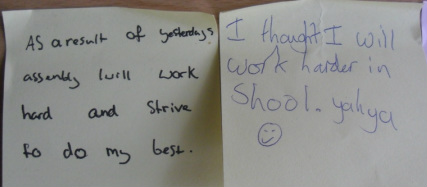 1b) Committed to work harder (10)
1b) Committed to work harder (10)
 2) Absorbed the assembly’s message, undergoing a shift in thinking to do so (36)
2) Absorbed the assembly’s message, undergoing a shift in thinking to do so (36)
– I will try to make sure I know what I am doing and now I know the exams aren’t everything
– School is not just for passing tests it is also about having fun and learning new things as you would always look deeper into things like an egg.
I didn’t realise that education or learning is more important than passing tests and getting a job
– I realised how much enthusiasm I have to put into school because of this assembly. It has shown me that you can think of things much more differently.
– I thought to me education is everything, you learn something new every day in school but in school it means to make your mind work in amazing ways to think about and learn great things
– I will learn more for fun and not just to pass tests. More to get an adventure out of life.
– Now understand why education is important
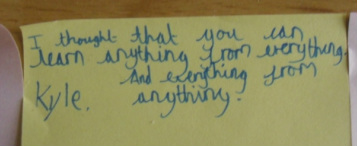 3) Had taken the assembly had thought about it in a way which pursued the assembly’s ideas and did something creative with them (18)
3) Had taken the assembly had thought about it in a way which pursued the assembly’s ideas and did something creative with them (18)
– There are always more/several answers for a question
– That I might not find the real meaning of learning until I’m older
– That education is what you want it to be
– I will think more outside the box and not just learn to make other people happy
– Learning is like growing, you can’t develop without it
– I thought that it is true but at the same time I disagree because in Greek times your future didn’t matter but if you got school but now your life is held in your tests [a pretty sophisticated point on lots of levels].
And finally:
Evaluation
Comments
Very inspiring Harry.
Good stuff, thanks Harry.
On the last point, if as the psychology suggests its powerful to remind individuals of their autonomy to choose, do you think this has implications for the value of giving parents choice over where their children go to school?
Harry – please keep sharing the iterative processes of things like this. It’s fascinating to be able to see the consequences of what you are doing, and how you are reinforcing. Often this part of the thinking is left hidden so teachers believe that a one-hit “perfect” lesson is enough. What you’re doing here shows how students have many different reactions to materials they are shown at school. Teachers then need to consider what they’re thinking, reformulate, rediscuss and keep them thinking at if we want to have a long-term impact.
Wonderful useful stuff.
Wonderful, lovely way of thinking and good to see it inspired some of the children. Not entirely sure about reference to ‘the bottom house’ though. Doesn’t read well.
– Laura – thank you! I’m more and more conscious of trying to understand the messy diversity of the impact our actions have – and refining what I do as a result. The kind of constant improvement you describe is something we don’t do enough – it’s taken me years to even start evaluating properly.
– Briar: The article suggests reminding individuals of their autonomy as a way to influence (in effect, to curtail) their choice. I struggle to see any connection between the research discussed in the article and the example you mention. Nice try though!
– ‘Birch’: ‘Bottom house’ on the picture of all the post-its, because, of our four houses, Waugh is the last alphabetically. No further significance – but you’re right about how it reads – so I’ve edited it out. Thanks.
Appreciated. Great work.

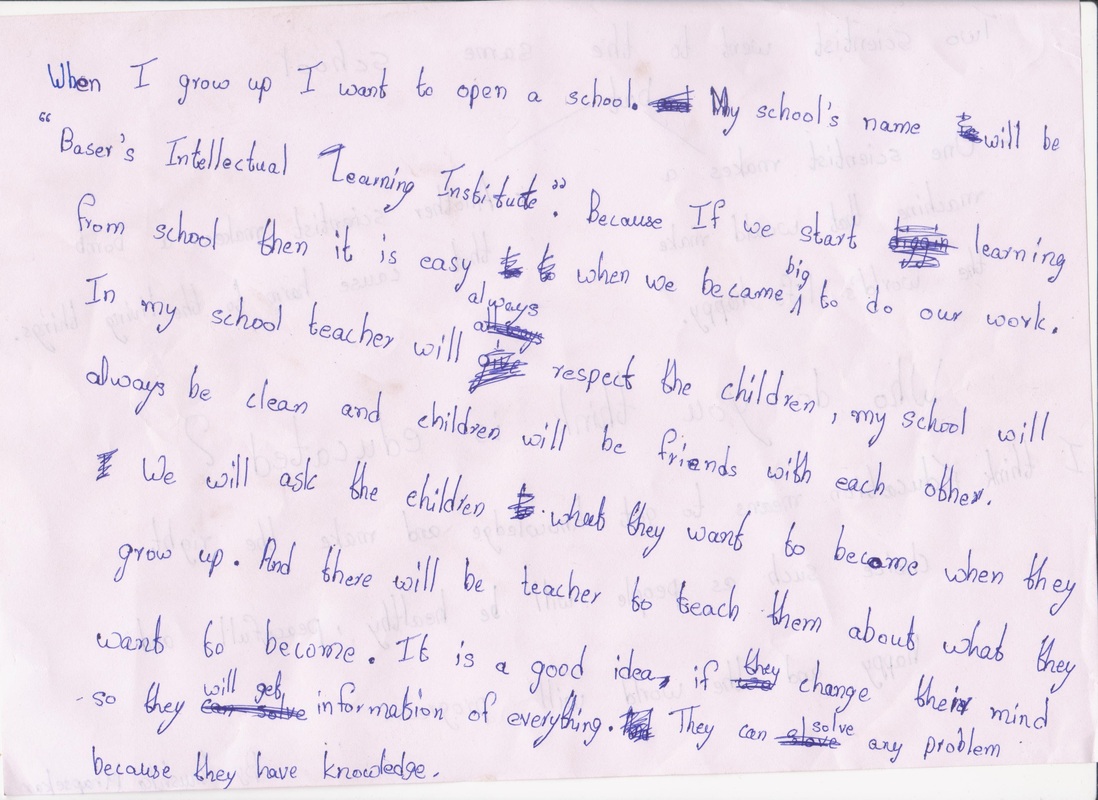
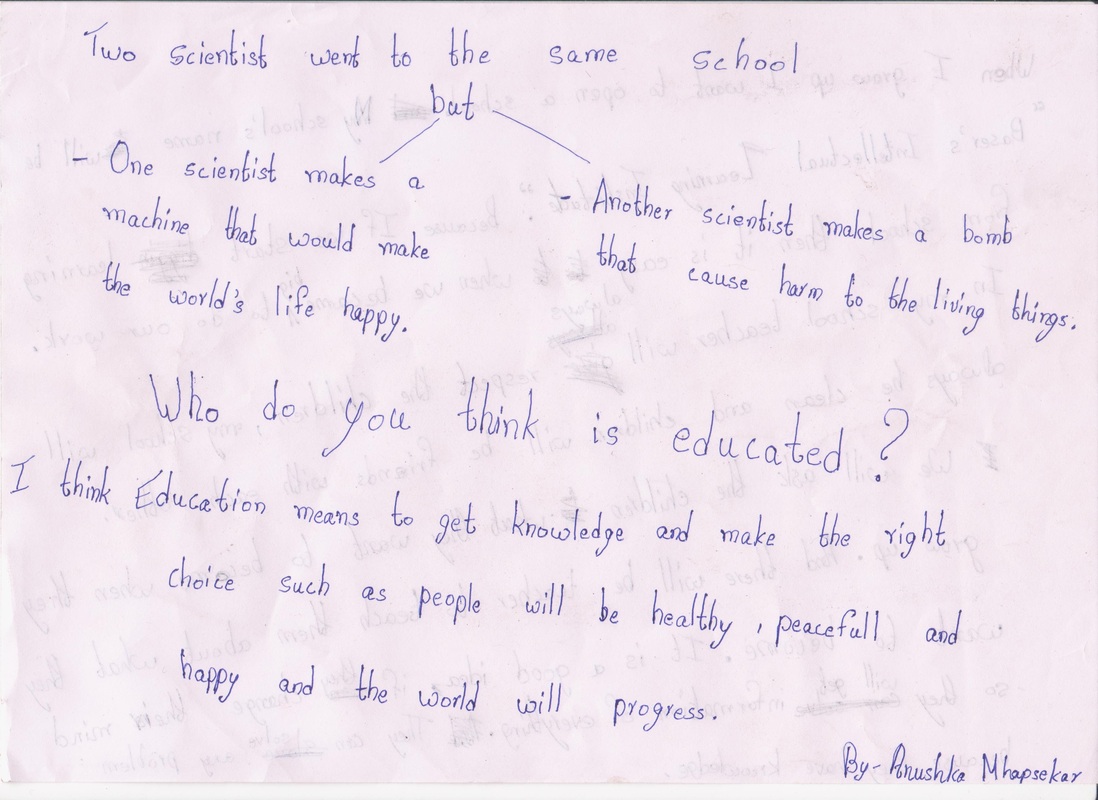

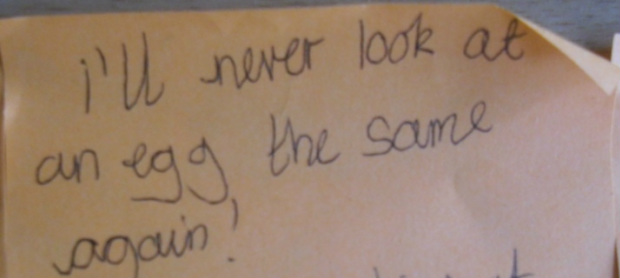
Iterative reflection seriously good. These are masterly. Keep it up!
A memorable talk!
And to echo the previous commenter’s sentiments, it’s wonderful – and rare – to see such candid self-evaluation. Thanks for sharing your thoughts and discoveries.
Education is nothing but Transformation process between students and Teacher about Knowledge.